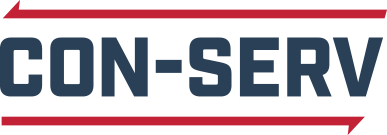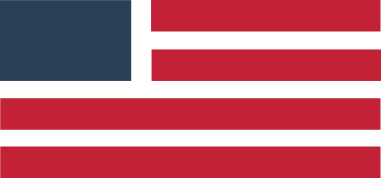-
Pot Bearings
ial-self-aligning-adjustable-bearings-pot-bearings
-
Fixed Type
Fixed Type
(17)CON-SERV Inc offers (3) basic pot bearing types: fixed, guided, and free-moving. In order to give the engineer typical dimensional data, the following criteria was adopted by CON-SERV Inc. as standard for the bearing detailed.
CON-SERV offers other types of designs; consult Engineering Department personnel for design assistance. CON-SERV can supply full friction and proof-load testing on all pot & disc bearing designs.
Standard Design Criteria:
- Steel Type – A588 (Y.P. = 50 KSI)
- Rotation Capacity - .02 radians
- Maximum Pressure on Elastomer – 3500 psi for pots to 5000 psi for discs
- Coefficient of friction - .03
- Lateral Load Capacity – 10% of Vertical (unless noted otherwise) Load (Fixed and Guided) – Maximum for Standard Design
- Movement ± 1” – Maximum for Standard Design
-
Free Moving Type
Free Moving Type
(17)CON-SERV Inc offers (3) basic pot bearing types: fixed, guided, and free-moving. In order to give the engineer typical dimensional data, the following criteria was adopted by CON-SERV Inc. as standard for the bearing detailed.
CON-SERV offers other types of designs; consult Engineering Department personnel for design assistance. CON-SERV can supply full friction and proof-load testing on all pot & disc bearing designs.
Standard Design Criteria:
- Steel Type – A588 (Y.P. = 50 KSI)
- Rotation Capacity - .02 radians
- Maximum Pressure on Elastomer – 3500 psi for pots to 5000 psi for discs
- Coefficient of friction - .03
- Lateral Load Capacity – 10% of Vertical (unless noted otherwise) Load (Fixed and Guided) – Maximum for Standard Design
- Movement ± 1” – Maximum for Standard Design
-
Center Guided Type
Center Guided Type
(17)CON-SERV Inc offers (3) basic pot bearing types: fixed, guided, and free-moving. In order to give the engineer typical dimensional data, the following criteria was adopted by CON-SERV Inc. as standard for the bearing detailed.
CON-SERV offers other types of designs; consult Engineering Department personnel for design assistance. CON-SERV can supply full friction and proof-load testing on all pot & disc bearing designs.
Standard Design Criteria:
- Steel Type – A588 (Y.P. = 50 KSI)
- Rotation Capacity - .02 radians
- Maximum Pressure on Elastomer – 3500 psi for pots to 5000 psi for discs
- Coefficient of friction - .03
- Lateral Load Capacity – 10% of Vertical (unless noted otherwise) Load (Fixed and Guided) – Maximum for Standard Design
- Movement ± 1” – Maximum for Standard Design
-
10 Percent Lateral Load Outside Guided Type
CON-SERV Inc offers (3) basic pot bearing types: fixed, guided, and free-moving. In order to give the engineer typical dimensional data, the following criteria was adopted by CON-SERV Inc. as standard for the bearing detailed.
CON-SERV offers other types of designs; consult Engineering Department personnel for design assistance. CON-SERV can supply full friction and proof-load testing on all pot & disc bearing designs.
Standard Design Criteria:
- Steel Type – A588 (Y.P. = 50 KSI)
- Rotation Capacity - .02 radians
- Maximum Pressure on Elastomer – 3500 psi for pots to 5000 psi for discs
- Coefficient of friction - .03
- Lateral Load Capacity – 10% of Vertical (unless noted otherwise) Load (Fixed and Guided) – Maximum for Standard Design
- Movement ± 1” – Maximum for Standard Design
-
30 Percent Lateral Load Outside Guided Type
CON-SERV Inc offers (3) basic pot bearing types: fixed, guided, and free-moving. In order to give the engineer typical dimensional data, the following criteria was adopted by CON-SERV Inc. as standard for the bearing detailed.
CON-SERV offers other types of designs; consult Engineering Department personnel for design assistance. CON-SERV can supply full friction and proof-load testing on all pot & disc bearing designs.
Standard Design Criteria:
- Steel Type – A588 (Y.P. = 50 KSI)
- Rotation Capacity - .02 radians
- Maximum Pressure on Elastomer – 3500 psi for pots to 5000 psi for discs
- Coefficient of friction - .03
- Lateral Load Capacity – 10% of Vertical (unless noted otherwise) Load (Fixed and Guided) – Maximum for Standard Design
- Movement ± 1” – Maximum for Standard Design





